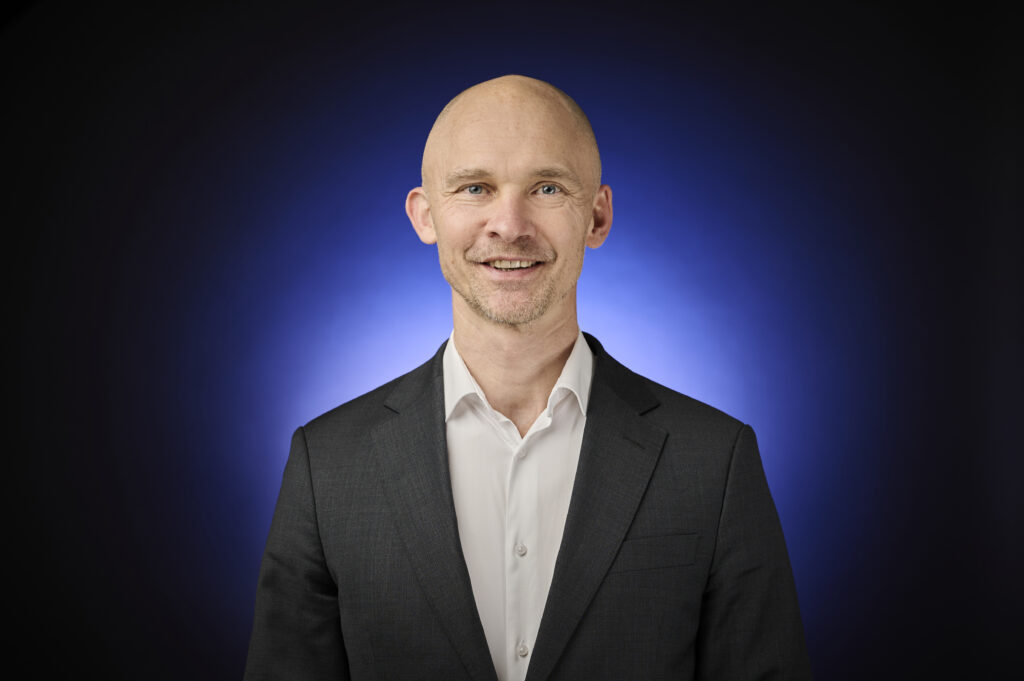As it seeks to modernize its software environment, Beyond Gravity wants to take full advantage of the cloud. That’s why this leading supplier to the space industry is on an all-out mission to move its enterprise resource planning (ERP) system to SAP S/4HANA Cloud, public edition.
While catastrophic asteroid impacts have been rare in Earth’s history, the threat asteroids pose to life on our planet is very real. With that in mind, NASA and ESA launched a mission in 2021 to test a method of planetary defense that involved deflecting Dimorphos – one part of the Didymos double-asteroid system – from its orbit by crashing a spacecraft into it. In part two of the mission, due to begin in October 2024, an orbiter known as “Hera” will lift off and, in October 2026, begin examining the effects of the test on Dimorphos.
Beyond Gravity: Space Technology That Protects the Planet
“Protecting Earth from asteroids that could pose a threat to us all is an exciting and important task,” says Johan Eckerstein, CIO at Beyond Gravity. Headquartered in Switzerland, Beyond Gravity is one of a group of suppliers of high-tech equipment for Hera and is responsible for delivering the spacecraft’s two solar wings. In addition to a variety of satellite components, the space technology specialist also builds launch vehicles, and a third, smaller division serves the growing lithography market. According to market intelligence platform Tracxn, Beyond Gravity ranks third among 21 competitors in its field.


EZYOne Transformation Project: Flight Path to the Future
“Our ambition is to be the No. 1 space technology supplier, the most innovative and most exciting company to work for,” says Eckerstein. As CIO, his job is to put the technology in place to make that vision a reality. The EZYOne program he initiated in October 2022 was a crucial first step in that process.
Beyond Gravity is the legal successor to RUAG Space, the space division of Swiss technology group RUAG International. So while it only began operating as a startup under its new name in May 2022, it has decades of experience in the space industry. With the company due to be privatized soon, its EZYOne digital transformation project is as necessary as it is challenging.
As the name implies, the idea is to make things easier. Beyond Gravity has historically grown from various companies and locations. Currently, there are various sites with different IT systems that are not linked to each other.
With EZYOne, Beyond Gravity is preparing to become a digital-first company that will leverage artificial intelligence (AI), machine learning, augmented reality (AR), and many other emerging technologies. The first step is to build a common digital core that will enable the company to unlock tremendous value and new ways to serve customers.
SAP S/4HANA Cloud, Public Edition: Seven Becomes One
Each of Beyond Gravity’s business divisions has built up its own vast pool of expertise over the years. But when it comes to IT, the company’s colorful history means it now has a mishmash of legacy systems – comprising seven different ERP systems alone – and, thus, an array of complex, inefficient, and costly processes.
IT solutions in use at Beyond Gravity in 2023
- 7 ERP systems
- 8 product lifecycle management (PLM) systems
- 5 business process management systems
- 2 manufacturing execution systems (MES)
EZYOne lifted off in October 2022. “We began by defining the architecture we wanted for our new IT landscape,” explains Eckerstein. That process led to a number of design principles aimed at ensuring the project was a success. They included:
- One solution of each type for all business units
- Cloud first
- Standard first (out of the box)
- No technical data in the ERP system
- Rapid go-live in the first quarter of 2024
When it came to selecting an ERP solution – and based on these criteria – Beyond Gravity opted for SAP S/4HANA Cloud, public edition. “From the perspective of an agile startup and the global market leader we aspire to become, cloud is the only way to go,” says Eckerstein. “When you choose a cloud solution, you are committing more to a provider’s road map than to a static product. And, as a midsize company, we can benefit from a vendor like SAP that has the infrastructure and resources to provide the solution reliably and securely.” This, he adds, eases the pressure on IT teams and frees up time for value-adding tasks.
Standard Covers 92% of Processes
Eckerstein points out, however, that if you want to enjoy the benefits of the public cloud, you have to be consistent in your approach. Essentially, when you transform business processes, that means sticking as far as possible to the standard version of the public cloud solution. Beyond Gravity defined the following rules:
- 80% of processes must be covered by the standard – and adapted to it if necessary.
- Key processes not covered by the standard must be added to SAP’s to-do list and implemented within a specified time frame.
- Where non-key processes are not covered by the standard, alternatives must be explored, such as a third-party solution, manual process, or other neat solution.
The result of this approach surprised even Eckerstein: “We managed to cover 92% of all processes with the standard solution. And in finance, we didn’t find a single gap!” There were many other practical benefits, such as:
- Managers can be able to call up a status overview of all projects in real time – for any country or currency – with just a few clicks.
- Intracompany processes can become more efficient, thanks to the option of using fully automated ordering and confirmation and in-transit goods tracking.
The percentage of processes not covered by the standard may be small, but it can represent a huge gap if even one of those processes is mission-critical.
Beyond Gravity has also got SAP – SAP Switzerland, to be precise – on board as an implementation partner to give it the most direct line possible to the SAP developers working on the cloud ERP solution.
Public Cloud ERP: A Calculated Risk
Beyond Gravity is now halfway along the project timeline. The solution was completed in September 2023 and is currently in its initial testing phase – with the first go-live scheduled for March 2024 in Sweden. “This kind of speed is only possible in the public cloud,” says Eckerstein, “and only if you adopt the right mindset.” In other words, if you want to enjoy the benefits of the public cloud, you have to be willing to take a certain amount of risk that you would avoid with an on-premise installation and trust that the provider’s road map will take you where you want to go. But, as Eckerstein adds, “This has nothing to do with blind trust; it’s about objectively calculating the risks involved.”
Top image courtesy of SAP employee Trupti Warad



